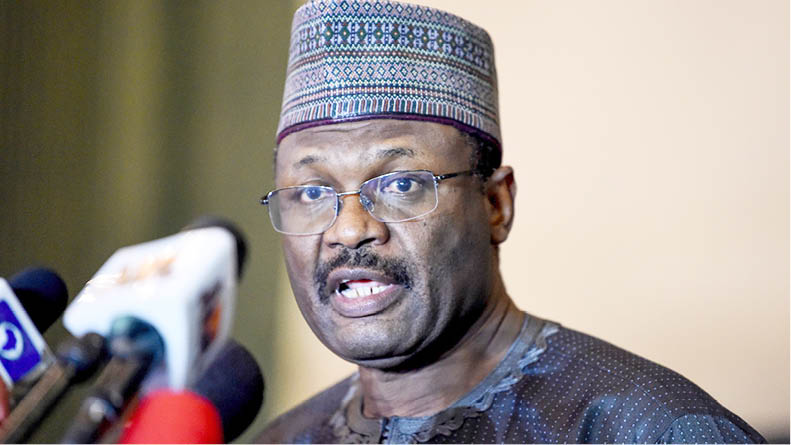The Independent National Electoral Commission (INEC) has said it will respond to President Muhammadu Buhari’s letter bearing in mind the overriding national interest and the interest of democracy.
Buhari had written to the chairman of the commission, Prof. Mahmood Yakubu, requesting advice over the Electoral Act Amendment Bill 2021.
The president, in the letter, sought comments of the INEC boss on the adoption of direct primary as sole option for parties to produce candidates for elections, among other key issues ahead of the 2023 general elections.
NEC National Commissioner and Chairman, Information and Voter Education Committee (IVEC), Festus Okoye, said it was strategic and fundamental for the president to have sought for the opinion of the commission and other critical agencies in the electoral matrix before a new legal framework becomes law.
“Pursuant to Section 58(4) of the Constitution of the Federal Republic of Nigeria, 1999 (as amended), the President has 30 days to assent to a bill presented to him by the National Assembly.
“The president has requested the commission and other critical national institutions to revert with detailed and considered views indicating whether or not the president should assent to the bill.
“This is the democratic way to go and the commission will make its views known to the president bearing in mind the overriding national interest and the interest of our democracy.
“The commission will go through the bill and revert to the president within the time frame given to it,” Okoye said.
He said the commission is aware that Nigerians are waiting for this bill and also conscious of the fact that a comprehensive, clear, unambiguous and forward-looking electoral legal framework is germane to the early preparation for election.
He said the regulations and guidelines of the commission are drawn from the Electoral Act and without a new electoral legal framework, the work of the commission will be tentative and that will not be good for the electoral process.
On cost implication, Okoye said it is rather unfortunate that the issue of direct or indirect primaries has overshadowed other fundamental issues in the bill.
“The new system of direct primaries proposed in the bill domiciles the conditions for the conduct of primaries with the political parties. In other words, the procedure adopted for the direct primaries shall be spelt out in a guideline to be issued by the political party and filed with the commission at least 14 days before the primary election,” he said.
On the online transmission of results, Okoye said, the “commission is rational and responsible and will introduce relevant technology in the electoral process when it is ready and when the technology has been tested and found to be robust.”

 Join Daily Trust WhatsApp Community For Quick Access To News and Happenings Around You.
Join Daily Trust WhatsApp Community For Quick Access To News and Happenings Around You.


